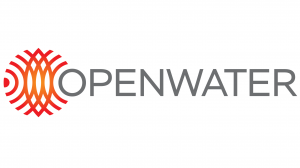
Study Demonstrates Low Intensity Focused Ultrasound Effectively Breaks Down Microclots Linked to Long COVID-19 Symptoms
Openwater’s device could offer a promising, affordable, and drug-free solution for long COVID therapies
SAN FRANCISCO, CA, UNITED STATES, July 8, 2025 /EINPresswire.com/ -- Openwater, an open-source medical technology company delivering portable, hospital-grade diagnostic and therapeutic devices, today announced new research showing that low-intensity focused ultrasound (LIFU) can effectively break down amyloid fibrinogen microclots associated with long COVID symptoms. Published in the Journal of Frontiers in Bioengineering and Biotechnology, the in vitro study demonstrates low-frequency ultrasound at 150 kHz is the most effective frequency for reducing both microclot count and size.
Approximately 60% of U.S. adults have had COVID, and of those, 30% report lingering long COVID symptoms, including fatigue, pain, breathlessness, headaches, and cognitive difficulties. Amyloid fibrinogen microclots, tiny protein aggregates that can disrupt perfusion and cause inflammation, are linked to these symptoms.
Current therapies, including clot-dissolving drugs, like recombinant tissue plasminogen activators (rtPA), and invasive blood filtration, often fail to fully resolve microclots and can pose significant risks. In order to improve the lysis, or disintegration, of these clots, researchers theorized microbubble-assisted ultrasound or rtPA-assisted ultrasound may improve the standard of care, and set out to understand the exact effects of ultrasound therapy alone and in combination with these additional measures.
In the study, Low-Intensity Ultrasound Lysis of Amyloid Microclots in a Lab-on-Chip Model, researchers created artificial microclots mimicking those found in long COVID patients. Using Openwater’s Open-LIFU technology, they tested how effectively LIFU could break down clots at different frequencies. Microclots were exposed to ultrasound waves at 150 kHz, 300 kHz, 500 kHz, and 1 MHz under four conditions: ultrasound alone, ultrasound with microbubbles, ultrasound with rtPA, and ultrasound with both microbubbles and rtPA.
The study found that 150 kHz ultrasound significantly fragmented these hard-to-treat clots, reducing their size and number by up to threefold. Openwater’s study establishes non-invasive LIFU as a safe and effective treatment, capable of breaking down microclots without surgery or pharmaceuticals.
Key findings from the study include:
- Low-frequency (150 kHz) ultrasound alone can break down microclots up to three times more effectively than higher frequencies, without the need for exogenous microbubbles or additional drugs.
- The combination of low intensity ultrasound with microbubbles results in acoustic streaming effects which cause microclot lysis. The use of a thrombolytic agent, recombinant tissue plasminogen activators (rtPA), further increases microclot lysis.
“Microclots are increasingly recognized as a key factor in persistent long COVID symptoms that can significantly impact quality of life, such as fatigue, breathlessness, and cognitive dysfunction, yet treatment options remain limited,” said Dr. Soren Konecky, Chief Technology Officer at Openwater. “These results show that our portable LIFU device could provide a safer way to restore blood flow and potentially relieve chronic inflammation.”
“Today’s treatments for microclots are often invasive and carry significant risks for patients,” added Aaron Timm, Openwater’s CEO. “Our study demonstrates that low-intensity focused ultrasound can safely and effectively break down these persistent clots, without the need for surgery or clot-dissolving drugs. The results of this study offer hope for a safer, non-invasive solution to help people suffering from long COVID symptoms.”
As the healthcare community searches for effective long COVID therapies, Openwater’s platform could offer a promising, affordable, and drug-free solution suitable for clinics, urgent care centers, and even home use. Looking ahead, Openwater is committed to making this technology widely accessible, with a goal to reduce the device’s cost to $500 within the next several years. Ongoing research and development, including AI-driven enhancements, aim to further improve precision, ease-of-use, and patient outcomes.
For more information, visit www.openwater.health.
About Openwater
Openwater is an AI-driven medical technology company founded by Dr. Mary Lou Jepsen to make hospital-grade care universally accessible. Backed by notable supporters including Khosla Ventures, Plum Alley, BOLD Capital Partners, Vitalik Buterin, Esther Dyson, and Peter Gabriel, Openwater employs open-source development and consumer electronics manufacturing to lower the cost and speed the delivery of non-invasive medical devices. The company collaborates with leading institutions worldwide to research, validate, and distribute these technologies, aiming to reach patients across borders and income levels.
community@openwater.health
Visit us on social media:
LinkedIn
Distribution channels: Healthcare & Pharmaceuticals Industry
Legal Disclaimer:
EIN Presswire provides this news content "as is" without warranty of any kind. We do not accept any responsibility or liability for the accuracy, content, images, videos, licenses, completeness, legality, or reliability of the information contained in this article. If you have any complaints or copyright issues related to this article, kindly contact the author above.
Submit your press release
